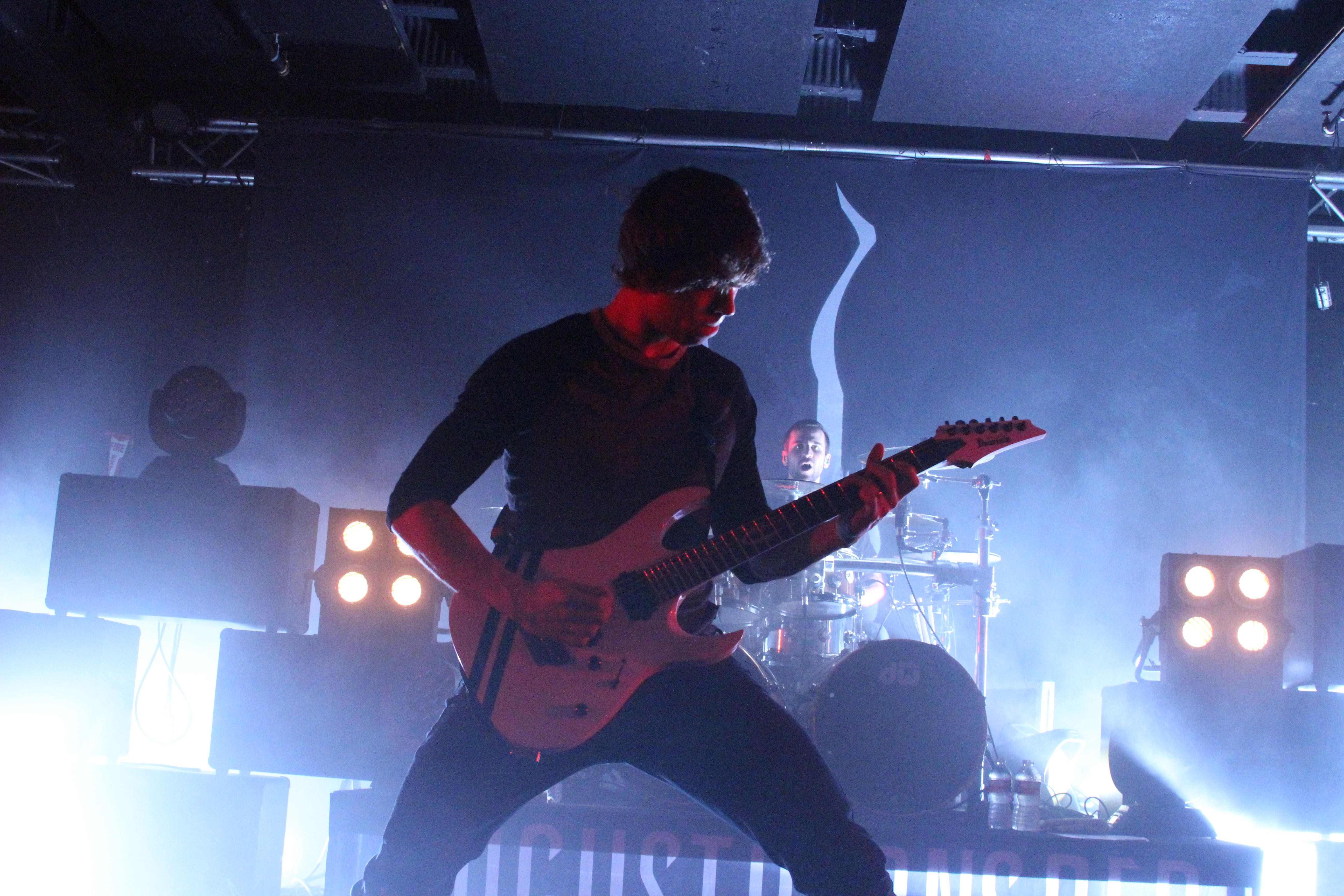
A top 10 debut on the Billboard 200 in 2013. A nationwide tour last month that sold out in nearly every city. A new album on a new label slated for a summer release that has devout fans chomping at the bit. It must be fun to be in August Burns Red right now.
The band wrapped up the Frozen Flame Tour on March 8, a nationwide trek featuring support from Miss May I, Northlane, Fit for a King and Erra. They recently ended their 10-year partnership with Solid State Records and switched to Fearless Records, which will release their new album, Found in Far Away Places, on June 30. I spoke with guitarist JB Brubaker when the band played San Antonio’s Backstage Live on Feb. 24, and he told me about the upcoming album, the new label shift and what it’s like being the “old guys” in their scene.
– Photos by Bryan Rolli.
Bryan: What should fans expect from this new album?
JB: I think you can expect the same kind of progression that you’ve seen if you’ve been listening to us for the last few albums. It’s certainly a step forward from Rescue and Restore, the one we did prior to this new one. However, I think that it’s a little bit more balanced than Rescue and Restore was, as far as weird parts versus expected metal parts and stuff like that.
Bryan: When you say balanced, what exactly do you mean? Because it sounds like it’s kind of going very heavy and then also very weird.
JB: It’s not all on the heavy end or all on the weird end. There’s more of a balance between the two. If you put them on a scale, it would tip toward the heavy, aggressive stuff, but there are still a lot of interlude-y type things, and certainly some experimentation on our end, which I think fans have come to expect from us at this point.
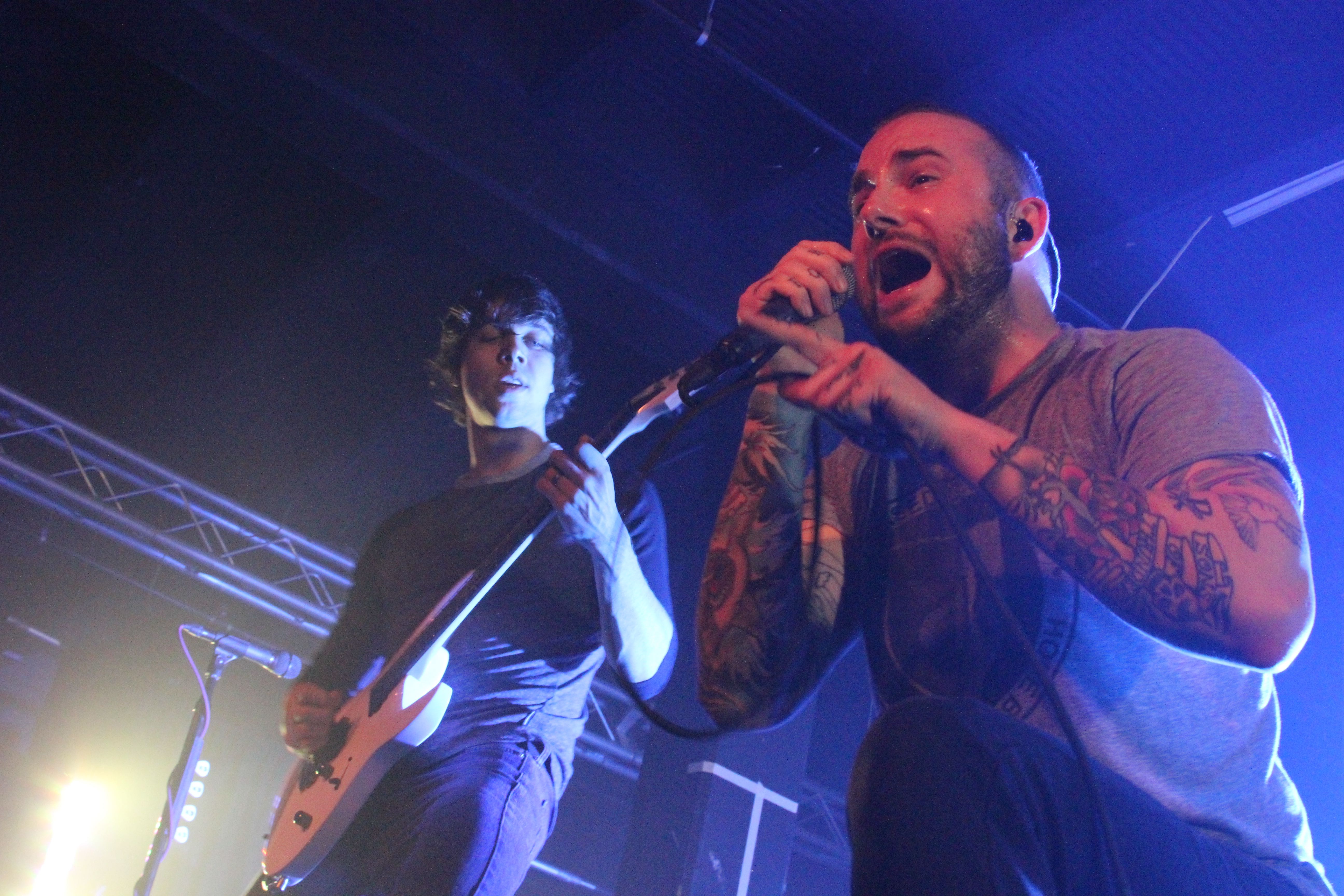
Bryan: What are some influences you drew from in making this album?
JB: Whenever I get asked that question, I like to say that my biggest influence is to not sound like other bands in our scene. There are just a lot of bands doing the exact same thing right now, and it’s our goal to not participate in those trends. To kind of blaze our own trail a little bit. I mean, yeah, we’re still playing breakdowns, but we’re also not doing the glitch weird sounds and putting techno beats all over everything and doing these big choruses. There’s no big singing choruses or anything. It’s very much still August Burns Red, and I think that we’re doing something a little differently than what the mass of metalcore bands are doing right now.
Bryan: Is it weird for you to play in that scene still and be with a lot of those bands, knowing that you don’t fit in with them completely?
JB: Well, it’s not weird because I know that a lot of the people that are listening to our band also like those kind of bands. And that’s fine. I don’t care what you listen to, but I do care what we’re playing and I care about the stamp we’re leaving on this type of music, and I want us to be remembered for being a creative band and always pushing the boundaries. I don’t want to be just forgotten under the heap of bands that played over the last decade, playing this kind of music.
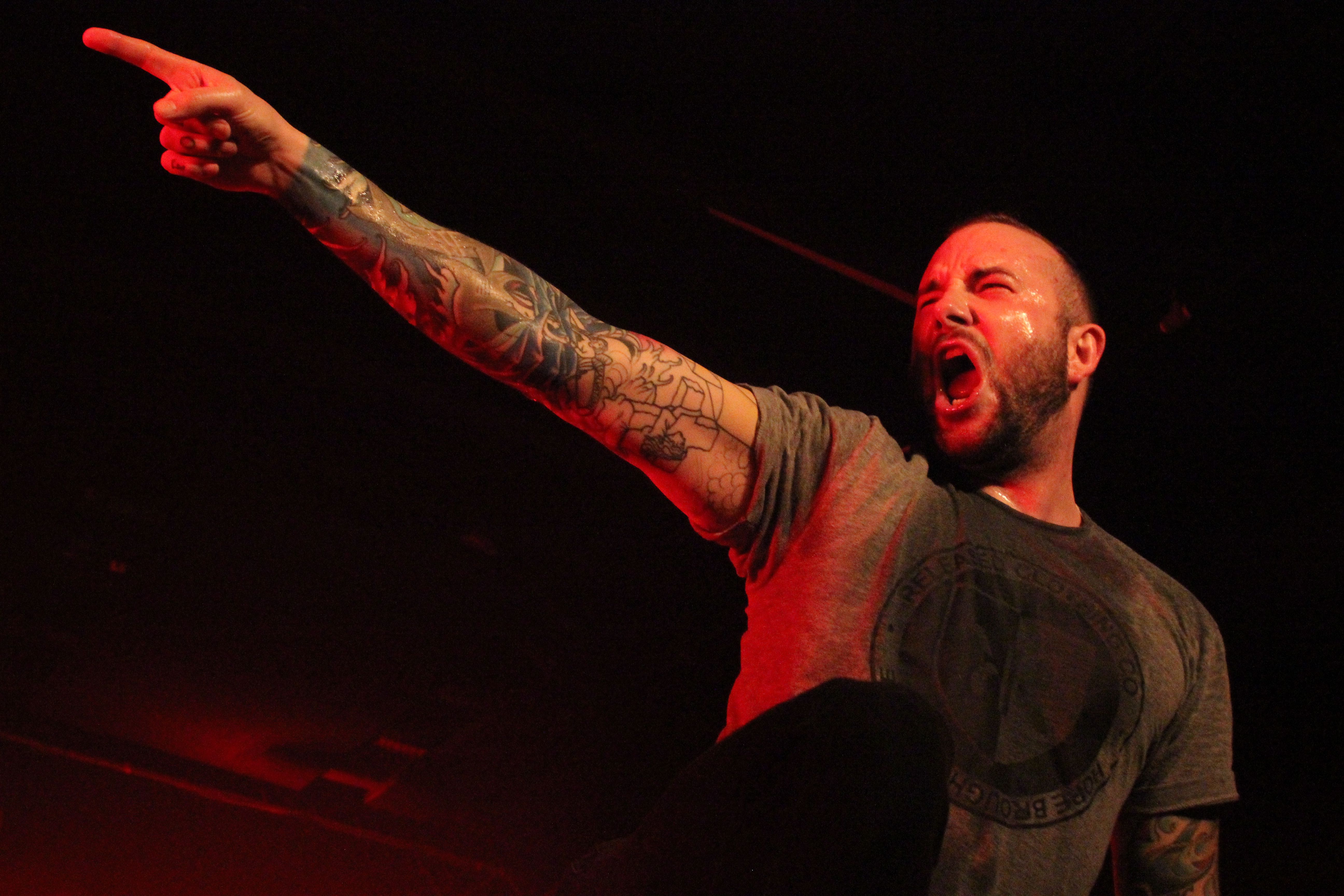
Bryan: I think it’s interesting that Rescue and Restore debuted at No. 9 on the Billboard chart.
JB: It’s very weird, and I don’t think it’ll ever happen again. The way this kind of music works is a lot of people are super dedicated and they go out and buy a record right away. So, we sold enough records in the first week of our album to debut at No. 9, which was fantastic. What a cool accomplishment that I can brag about to my grandkids 40 years later. But now, they have it such that streams and stuff are counting towards your Soundscans, so huge artists like Fall Out Boy who get a lot of play on Spotify and all these streaming sites – streams are counting toward their weekly Soundscans. We sold about 30,000 albums on Rescue and Restore, and that got us to No. 9. Now, if we sold 30,000 albums with this next record, it would probably debut at No. 40, based on how these streams and paid subscription services tie in. And I think that’s fine. I don’t care about chart position anymore. I mean, it’s cool, we can always say we had that really nice debut with Rescue and Restore, but at the end of the day, I care more about if people liked the show, are coming out to see us play and basically just enjoying what we’re doing. I think that means more in the long run than the bragging rights that go along with saying where you charted on the Billboard Top 200.
Bryan: With this new album, you guys are moving from Solid State Records to Fearless Records. What sparked that decision?
JB: Well, we spent many years with Solid State. Great label, great people over there, and we had signed a pretty long contract when we were a young band. And it came to the point where we had fulfilled our deal and had the opportunity to test the waters, sort of like a free agent in baseball or something, you know? So we met with a whole bunch of labels and kind of heard what everyone had to say and weighed our options, and we just felt like Fearless was the best fit for the band right now, based on how that label is trending, the resources behind them and the expertise in what they do. They do a really good job marketing their bands. They’re a very relevant label right now. Not to say that Solid State wasn’t doing that, and we certainly considered resigning with them simply because of our long relationship and how well they did treat us over the years. But we felt like the smartest move for us as a band was to move toward a new direction with Fearless.
Bryan: Is it weird for you guys playing old tracks live, like stuff off Messengers? What’s it like interpreting them now that you’re older?
JB: Personally, it’s not weird at all. We love to play songs that people want to hear, and we know that people like Messengers a lot, so we still obviously are playing tracks off that record. If I were hearing Messengers for the first time today, I wouldn’t put it on the same level that our fans have, who came up with that album. It’s kind of a special album for them because of the time in which they got it and heard it, and I think that for the time, it was a cool record, for sure. But the genre’s always evolving, and our music has evolved a lot from then. I often hear from a lot of people that say, “Write another Messengers.” And that’s cool, I’m glad that people really like that record. I think if we tried to recreate an album in that vein and put it out today, people would be like, “What’s this? This sounds old and not relevant.” It’s nice to say that, but I think if we actually did it, people would be bummed. And you know what’s nice? You guys are always gonna have that record. Enjoy that record for what it is, and enjoy whatever we put out next for what that is. I mean, they’re gonna be different. There’s a different time, and we’re a different band now too. We’re always gonna be changing.
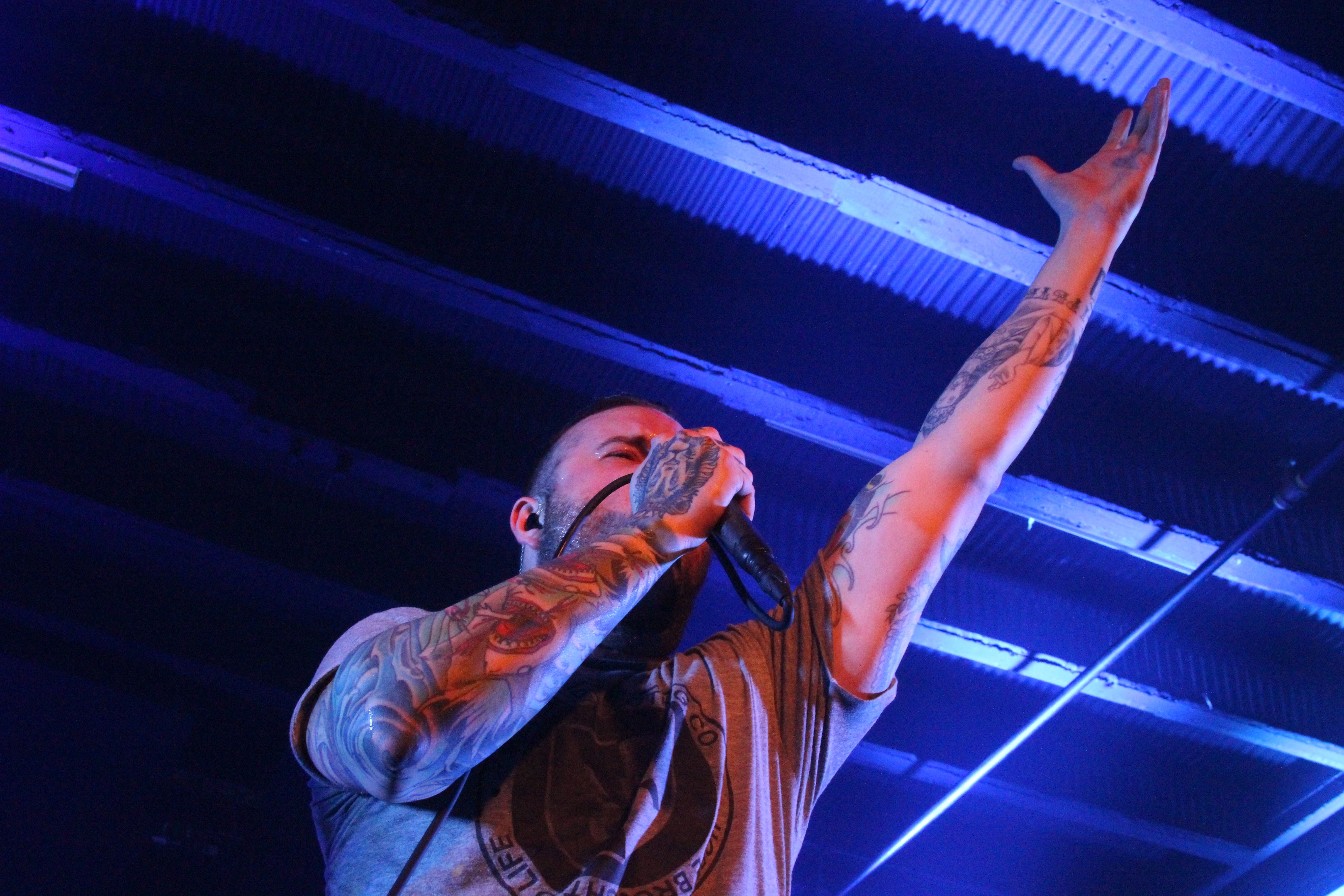
Bryan: Lyrically, a lot of people find hope and positivity in your music. When you write music, is it with the intent of being that hopeful, positive band?
JB: I think that ABR always wants to be a positive influence. There are always a lot of younger people in the crowd, and there are a lot of pretty terrible bands out there as far as content goes, and that’s not something we want to really contribute to. We’d rather be giving a more uplifting, hopeful message, like you said. Not all of our songs are all positive, but I don’t think that listening to August Burns Red and reading our lyrics is going to negatively impact your life, and that’s important to us. We understand that what we’re doing and saying influences a certain age group that’s gonna come and see the show and care about us as people, so we want to reflect a positive lifestyle and be a good example on how to live your life.
Bryan: And of course, a lot of people label you as a “Christian metal band.” How do you guys react to that?
JB: Well, this has been something we’ve debated as a band for a long time too. There are varying degrees of the intensity of Christianity in each of our lives, and we decided years ago that we were not going to be an “evangelical band.” We’re not onstage to bring people to God, that’s not our purpose up there. Our number one purpose in ABR is to entertain. We’re entertainers, we’re musicians trying to write great songs and put on a great show. And we think that if people like what we’re doing, then maybe they can dig a little deeper, take in the lyrics and see what we’re all about and talk to us on a personal level. And I think that is a lot more effective than being a full-on “youth group band.” We have no interest in being that. And I think it’s cool to play for a wide range of opinions when it comes to religion. I would be happy to play for a room full of Satanists. I don’t care. I’ll play for anyone. We don’t care about that.
Bryan: What is it like playing with a lot of younger bands that probably cite you as an influence?
JB: That’s always crazy when bands say that, like, “Oh my God, it’s so cool to be on tour with you. Your blah-blah-blah record was, like, one of my favorites.” And I guess it’s flattering, it’s very nice to hear. Makes me feel old sometimes, but I understand we’re about to put out our sixth full-length. That’s a lot of records. A lot of bands don’t have careers that long, so I guess there’s no shame in being the older dudes. We’re still at it, and people are still coming to the shows, and we’re still having fun, so who cares?
Bryan: Is it harder to connect with younger fans now that you’re older?
JB: No, I don’t think so. I think I’m pretty relatable. I think we all are. I can remember what it was like being in college, and I can remember what it was like going to shows in high school. That was really important to me, and super influential in my life. I wouldn’t be here talking to you if I didn’t have a passion for live music when I was 16 years old, going to punk shows at home. So no, I don’t find it hard to relate. I think that people get into this scene the same way I got into it, and not much has changed in that regard.
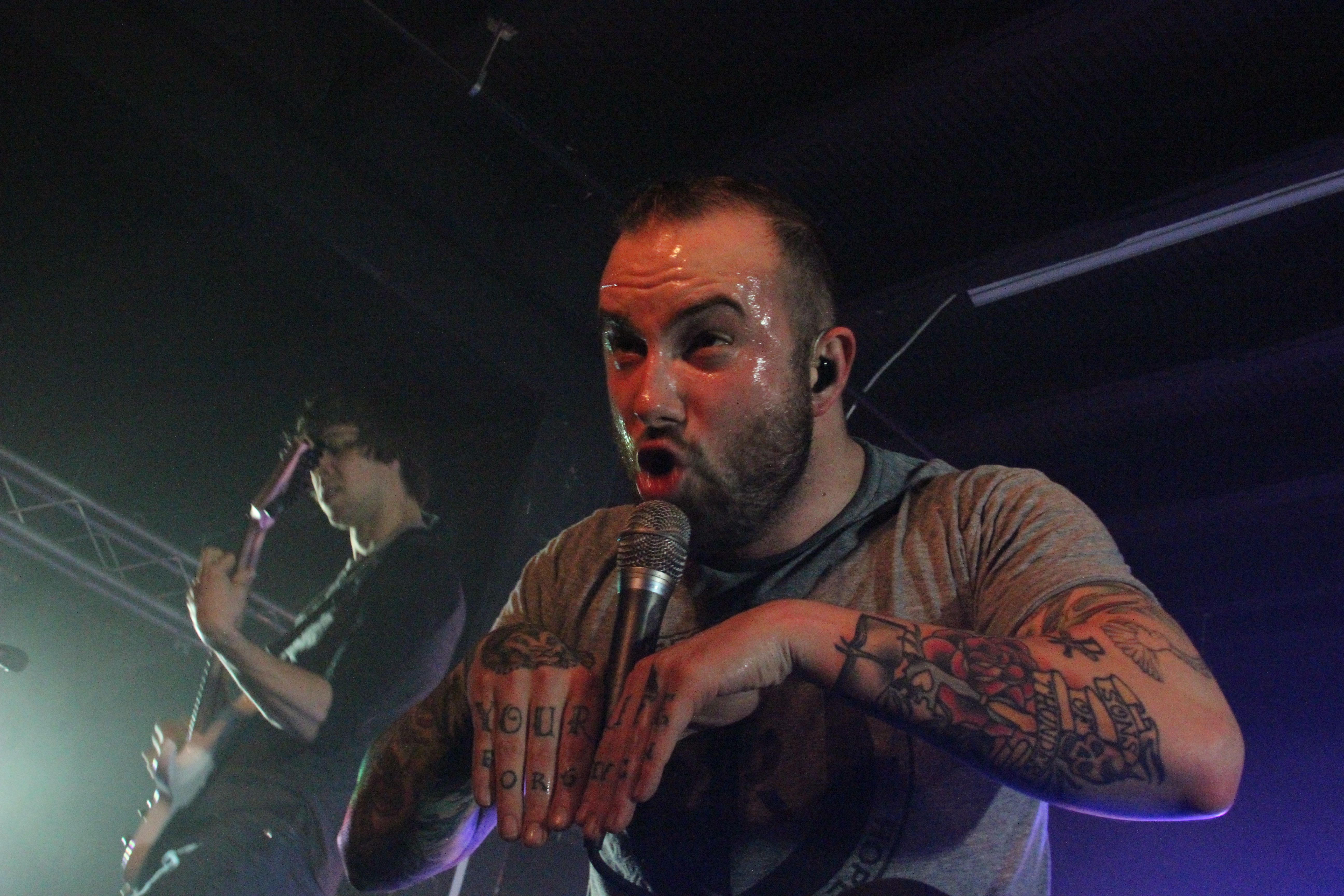

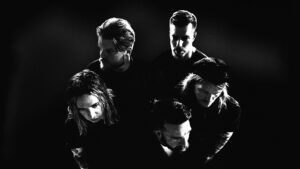
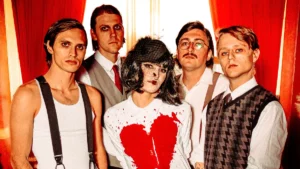
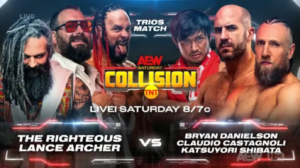
More Stories
Underoath is currently finishing up work on a new album
SeeYouSpaceCowboy “Present Coup De Grâce Live!” summer headlining tour
Summer Slaughter returns with Veil Of Maya and Brand Of Sacrifice sharing a co-headlining spot